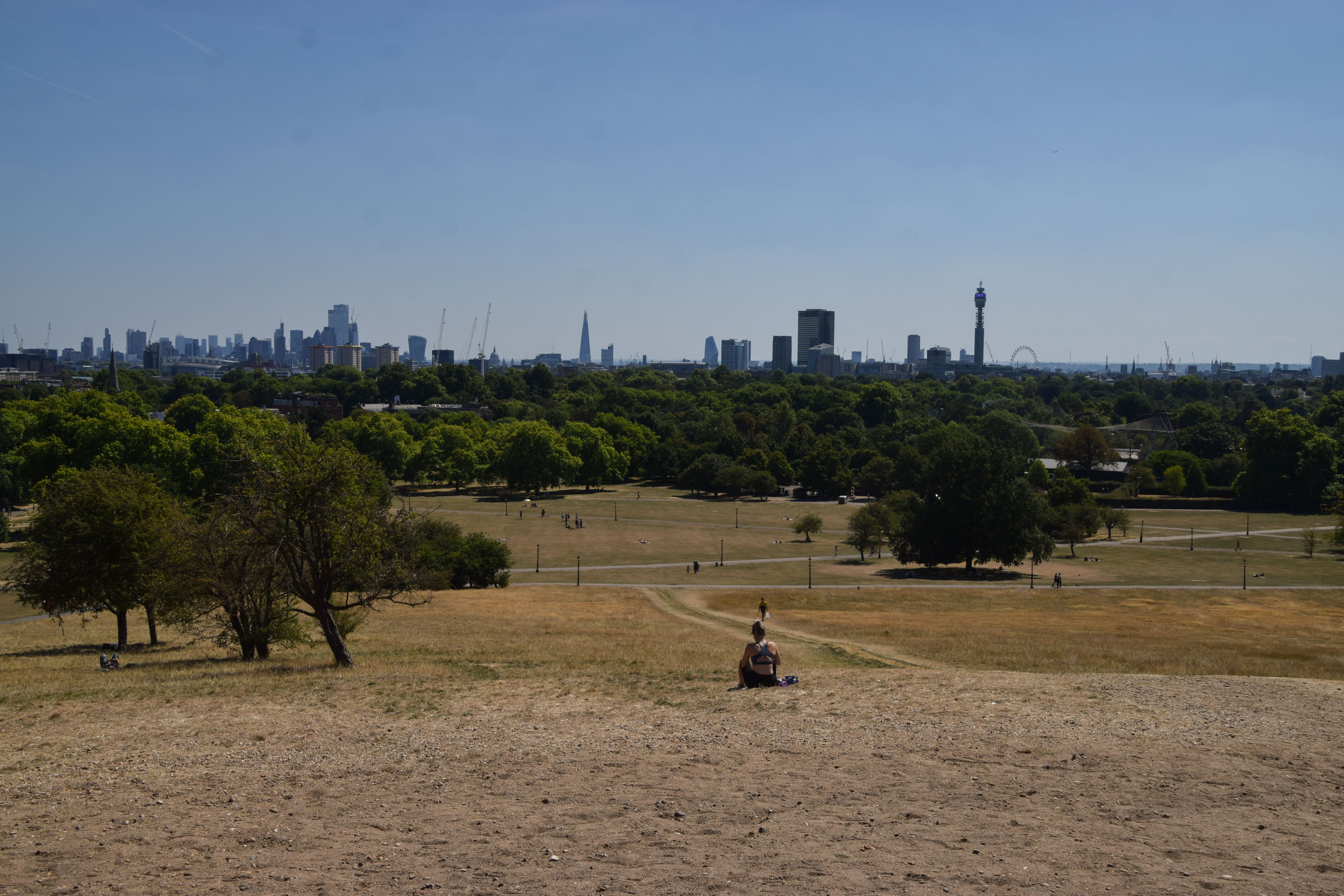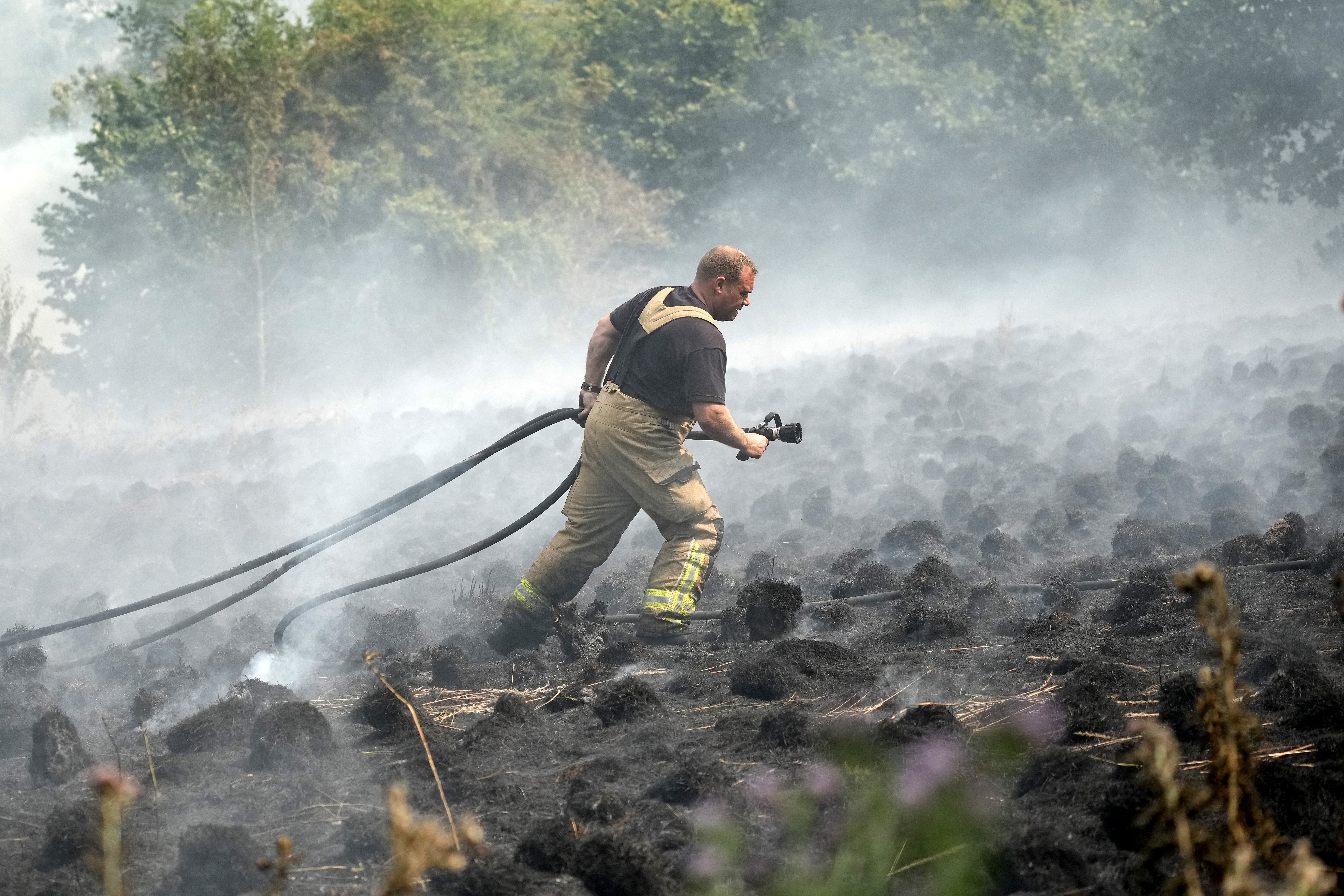UK weather: Heat record broken as temperatures fail to drop below 26C for entire day in July
New data shows July deaths peaked on same day, when thermometers also hit new high of 40.3C
Your support helps us to tell the story
From reproductive rights to climate change to Big Tech, The Independent is on the ground when the story is developing. Whether it's investigating the financials of Elon Musk's pro-Trump PAC or producing our latest documentary, 'The A Word', which shines a light on the American women fighting for reproductive rights, we know how important it is to parse out the facts from the messaging.
At such a critical moment in US history, we need reporters on the ground. Your donation allows us to keep sending journalists to speak to both sides of the story.
The Independent is trusted by Americans across the entire political spectrum. And unlike many other quality news outlets, we choose not to lock Americans out of our reporting and analysis with paywalls. We believe quality journalism should be available to everyone, paid for by those who can afford it.
Your support makes all the difference.Yet another record for extreme heat in the UK was broken in July, the Met Office has confirmed, after temperatures in Oxfordshire failed to drop below 26.8C for an entire day.
The statistic, captured by thermometers at Shirburn Model Farm, marks the hottest daily minimum temperature ever recorded in the UK.
The sweltering low was recorded at 4:32am on 19 July, the same day that a high of 40.3C in Coningsby, Lincolnshire, broke the UK’s previous all-time heat record – set just three years prior – by 1.6C.

New official figures, also published on Tuesday, showed that more than 1,700 people died in England that day.
This is considerably more than on any other date in July, with fatalities higher on average during the periods of extreme heat that month.
“This new record is another reminder of just how severe the heat was in July,” said Met Office Data quality manager, John Penman.
“What is remarkable is just how much this has surpassed the previous record, exceeding the August 1990 record of 23.9C by nearly 3C.
“Much like the daytime highs, the overnight temperatures have smashed the previous records during a period of unprecedented heat in the UK.”

The extreme heatwave in July broke temperature records across the UK, with new national all-time highs recorded in Scotland, Wales and Northern Ireland – conditions which experts warn are becoming far more likely as a result of climate breakdown.
It also brought widespread disruption, with the government declaring the UK’s first national heatwave emergency over fears that the risk to life could extend beyond those typically deemed vulnerable in hot weather.
A major incident was declared in the capital by the London Fire Brigade, which sent dozens of fire engines to blazes across the city, including 30 to a huge grass fire in Upminster, as overwhelmed firefighters in parts of the country were left unable to respond to some fires.
Antonio Gasparrini, a professor of biostatistics and epidemiology at the London School of Hygiene and Tropical Medicine, warned last month there may have been close to 1,000 excess deaths between 17 and 19 July – but said the early warnings put out by the Met Office and the government may mean the toll is lower.

New figures from the Office for National Statistics (ONS) on Tuesday showed that deaths in England in July were higher on average during the periods of hot weather, peaking at 1,775 on 19 July – the day that both the maximum and minimum temperature records were broken.
The days with the second and third-highest number of fatalities fell on the 18 and 20 July – which also saw heat records broken – with 1,442 and 1,604 deaths, respectively.
During the three “heat periods” – identified as between 10 and 22 July, 23 and 25 July, and 30 to 31 July – some 1,224 deaths occurred on average – 7 per cent more than the daily average for the rest of the month.
These deaths “could be because of a combination of factors, not just the increase in heat” the ONS said, adding that “further investigation is required to understand this fully” and more analysis will be published “in due course”.
The total of 42,034 that month were 10 per cent above the five-year July average, according to the ONS.
In addition to searing heat during the day, high temperatures throughout the night can also pose a danger to health.
“You need some time to cool things back down – if the nights are too hot then that doesn’t happen, and it just exacerbates the heat stress effect on people,” Dr Edward Gryspeerdt, a climate scientist at Imperial College London, told the i newspaper on the day the minimum daily heat record was broken.
When temperatures fail to fall below 20C over a 24-hour period, this is known as a “tropical night”.
These are becoming increasingly common as our climate changes, with 84 tropical nights recorded in England and Wales between 1991 and 2020 – close to double the 44 witnessed in the three decades prior.





Join our commenting forum
Join thought-provoking conversations, follow other Independent readers and see their replies
Comments